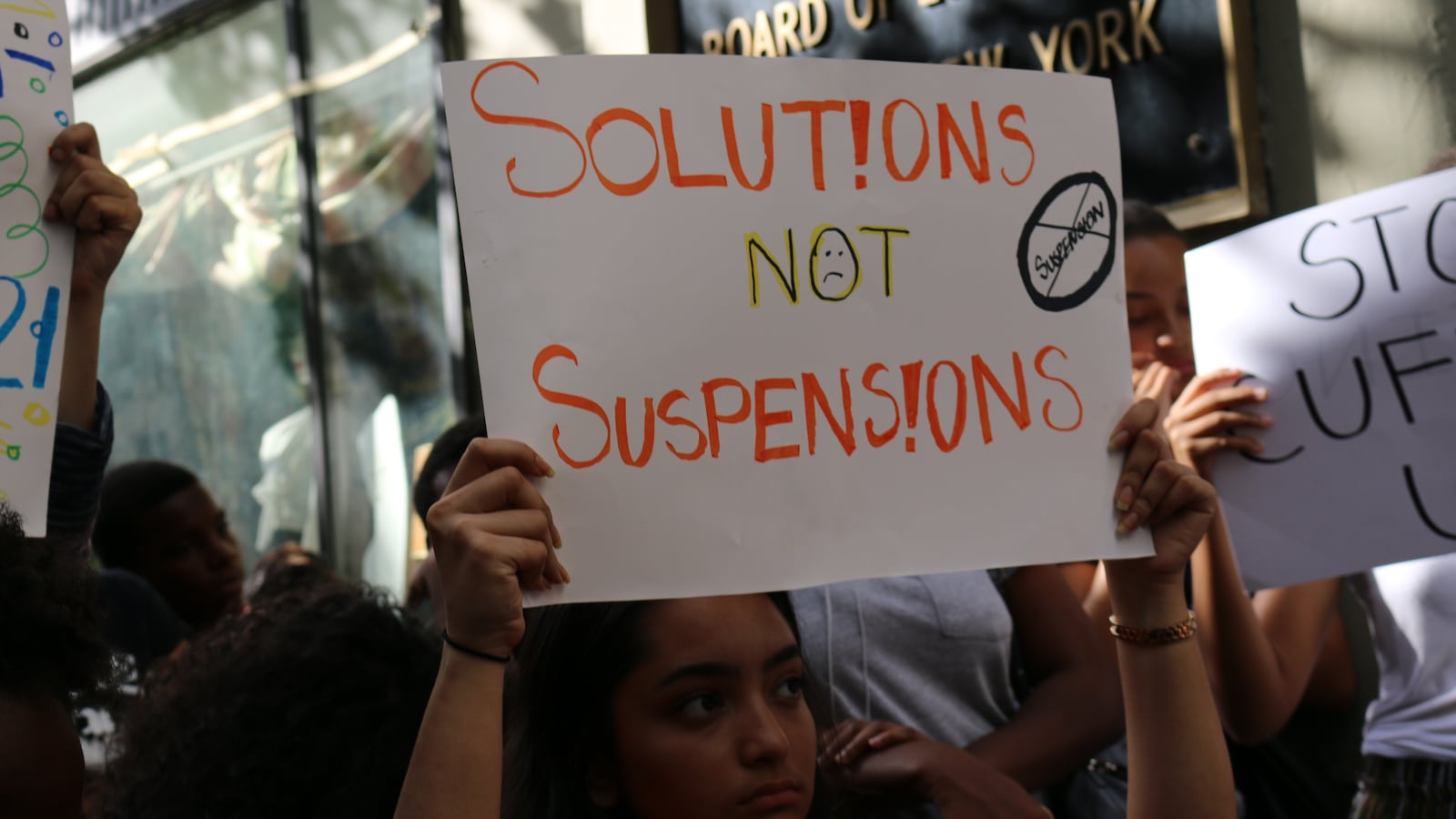A new discipline code took effect across all New York City schools this morning, after months of debate that started last summer.
You can read the code here, as well as school Chancellor Carmen Fariña’s letter to parents about the changes. In case you missed it, here’s a crash course on some of the key changes, and the debate that led up to them.
- The goal: fewer suspensions. The new policies are designed to dramatically reduce the number of suspensions issued to the city’s youngest students and continue the city’s shift away from those penalties for older students.
- The city settled on a near-ban on suspending young students. A key sticking point was the city’s initial promise to end suspensions entirely for students in grades K-2. “Principal’s suspensions are not permitted for students in Grades K-2, except in limited circumstances,” the new code states.
- Lighter punishments are encouraged. Suspensions have been eliminated as a potential consequence for several infractions, and maximum penalties are reduced for others. In grades 6-12, for example, the maximum punishments are reduced for 14 out of the 62 infractions. In grade 3, the maximum punishment is reduced for 14 infractions, and for grades 4-5, the punishments are reduced for eight, according to city officials.
- Today’s changes build on previous edits to the discipline code. Those have sometimes required extra layers of approval to suspend a student. Schools issued about 30 percent fewer suspensions last year than they did two years prior, a fact the city has touted as an accomplishment.
- The debate raises larger questions. Some of them are being asked in other large school districts across the country: Will reducing suspensions improve learning conditions in general, and especially for students of color and those with disabilities who are disproportionately subjected to them? Or will quickly phasing them out leave educators without the tools they need to maintain school order?
- Reaction to the reductions in New York City has been mixed. Advocates argue the city hasn’t gone far enough, and some educators claim changes to the discipline code have made schools more chaotic.

